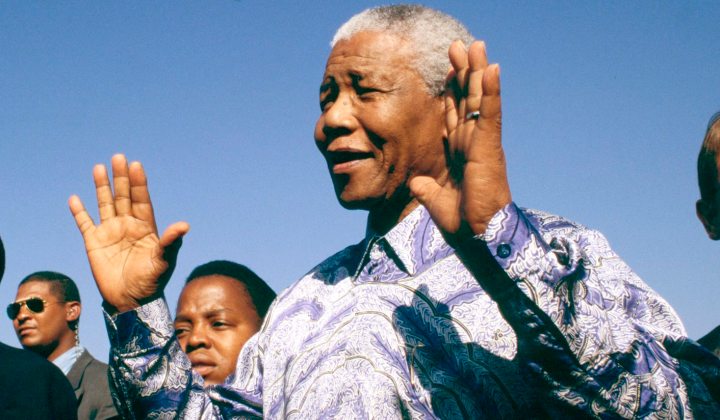Sport
Vincent Barnes: Meeting Madiba

Vincent Barnes, South Africa’s former bowling coach and current man in charge of shaping the future of South Africa’s cricketers at the High Performance Centre in Pretoria, shared his tribute fo Nelson Mandela and his experience of meeting the great man with ANTOINETTE MULLER.
There is no denying that Nelson Mandela had a special role to play in sport in South Africa. He believed in the power sport holds to not only unite a nation, but to change things for the better. From boxing to rugby to cricket, all sporting codes were dear to his heart. He’d often invite players to his house for tea and if not that, he’d take the time to meet them personally at their hotels before important games and formed personal relationships with quite a few of South Africa’s most notable stars.
On Friday, tributes from across the world poured in for the former president and they all had one central theme: he had a presence and he made you feel special. Vincent Barnes, South Africa’s bowling coach, who himself grew up in Apartheid-era South Africa, met the former president twice, once at an event at the V&A Waterfront and once at his home where the whole South African team met him.
Barnes is the epitome of what Mandela helped the country to achieve. Although he was a fine bowler in his day, with 323 wickets at the staggering average of 11.95, the colour of his skin prevented him from representing South Africa. He did eventually represent his country, though, in a coaching capacity, and through this, Barnes managed to meet a man he always dreamed of meeting.
The event at the Waterfront was fleeting and nothing but a handshake was exchanged, but it was the meeting at the former president’s house that will live on with the former South African bowling coach forever.
“I shook his hand and sat just to the right of him. He asked me whether I was a player and I explained that I was a coach,” Barnes recalls.
“He said, ‘That’s wonderful, we need people like yourself to be role models to our sportsmen and our youth.’ I was taken aback. I felt that I couldn’t be given that title and that I didn’t deserve that. Even if he didn’t know exactly who I was, he made me feel like he knew me. It was an unbelievable experience and he was such an amazing man.”
The moment would live on with Barnes for some time after and as the news emerged that South Africa’s father had passed on, he watched with a very sore heart.
“I was impacted by that for a few days after. We always heard about this great man. It felt like when you make a mistake and somebody puts their arm around your shoulder and says: Don’t worry, it’s okay. It was a feeling like that. I sat in my room in tears on Thursday night watching things about his life,” Barnes adds.
South Africa’s High Performance coach visited Mandela’s cell on Robben Island and it was something else which impacted him on a profoundly personal level.
“Being part of the Apartheid era and the Struggle, you can identify who was deeply involved in the Struggle. It really hit me when I visited Robben Island. I wanted to find out more about the history of Robben Island and the prisoners.
“I sat in his cell for ages; I wasn’t part of a tour group, but I had just had this strange feeling that there was suffering and greatness here. It’s a feeling I can’t explain. I always wanted to meet him to tell him how much I felt that day.”
Although Mandela’s role in sport cannot be underestimated, Barnes believes that his role in society stretches far beyond that. It’s his humility and forgiveness which set him apart from everyone else.
“I think the bottom line with him is that somebody who can spend 27 years in prison and come out with that humility is something incredible. If you’re in prison for that long for doing something that you believe is right, you must have the anger from hell,” Barnes says.
As a young kid growing up in Apartheid-era South Africa, Barnes had his own run-ins with police and a festering frustration with the authorities. Mandela’s ability to leave prison without so much as an ounce of hate or need to disrupt the country and take up arms is something that will live on in the hearts of many.
“Apartheid was a terrible time and there was so much negative feeling towards the authorities. My first collection of it is as a kid – we were removed from Muizenberg beach and when I asked my dad why we were leaving, he said: there are people in the blue there who don’t want us to be here. I couldn’t understand and I had lots of negative feelings towards people in blue uniforms. It was a horrible time and even though I never went to prison, I was roughed up during the 1976 riots,” Barnes remembers.
His presence is something which everyone recalls and for Barnes, that impact was no different.
“Certain people have just got this presence and embrace that’s on another level. I think a lot of people can identify with that. A man who spent so much time incarcerated came out with forgiveness and humility and understanding is truly remarkable,” he adds. DM
Photo by Greg Marinovich.




















 Become an Insider
Become an Insider